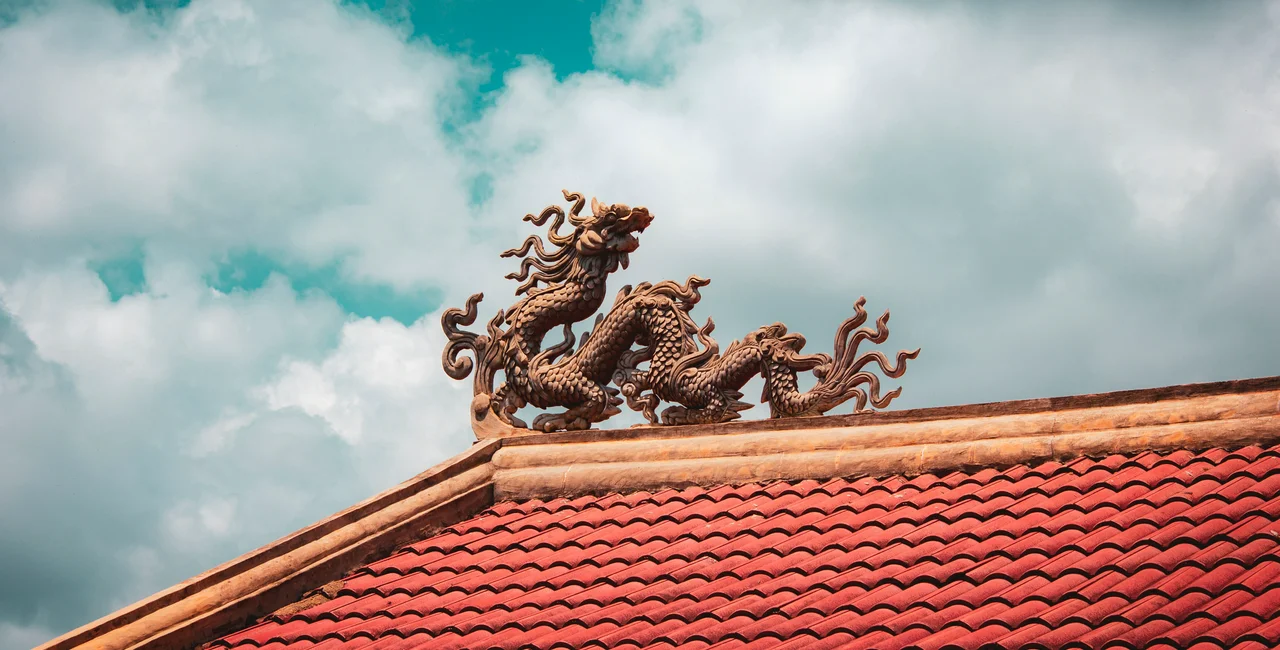While many people may be familiar with Czechia's diplomatic relationship with Vietnam – the country is home to one of the largest Vietnamese communities in Europe – the story of how that connection began starts with the Vietnam War.
Czechoslovakia, which like North Vietnam had a communist government, played an important role in the war as a weapons supplier to the Viet Cong, the forces that were fighting against America. At the same time, Czechoslovakia began to host Vietnamese students and workers.
The last American combat troops left Saigon, now Ho Chi Minh City, 50 years ago on March 29, 1973. This ended America's direct involvement in the fighting. About 5,000 non-combat forces and embassy staff remained until the Fall of Saigon on April 30, 1975.
The U.S. involvement in the Cold War conflict began as early as 1955. The first programs to bring students from North Vietnam to Czechoslovakia began almost as soon as the war did and grew stronger as it continued.
What weapons did Czechoslovakia supply?
Overall, Czechoslovakia was the third-largest supplier of aid to Vietnam's communist forces, providing up to 10 percent of their weapons, historian Oldřich Tůma from the Institute for Contemporary History of the Academy of Sciences told Czech Television.
A declassified CIA report from 1968 lists Czechoslovakia as a supplier of anti-aircraft weapons, assault rifles, machine gun ammunition, and field telephones. “Czechoslovakia reportedly has provided a number of armored personnel carriers, but these have not yet been confirmed by observation,” the report stated.
During the Cold War era, Czechoslovakia was a “small arms powerhouse,” according to the foreign policy magazine The National Interest. The small arms sent to North Vietnam mostly came from the Česká zbrojovka arms factory in Uherský Brod. They included two types of small machine pistols, the most famous of which was Vz. 61 Škorpion, and the Vz. 58 assault rifle. The latter was similar to the Russian AK-47 but slightly more reliable.
Easy manual work with electronics - start 8th Jan

Military cooperation began in 1956 with Czechoslovak aviators training the North Vietnamese air force in China with the Czech-built Aero Ae-45, Aero L-29 Delfín, and Zlín Z 26 aircraft.
Vietnamese students came in the late 1950s, along with Ho Chi Minh
Cooperation in education between the two countries began in 1956 with a short-term project. About 100 North Vietnamese schoolchildren were sent to Chrastava in the Liberec region. President Ho Chi Minh visited the town in 1957. The children called him “Uncle Ho.” A newsreel clip, with Czech narration, can be seen here.
Most of the children returned to Vietnam after the four-year program ended, but a few stayed to continue their education and formed the basis of a Vietnamese community that remains in that town to this day.

Chrastava Mayor Michael Canov told news site iDnes that mutual friendship between his town and Vietnam continues. "They even sent us money and a truckload of soup during the [2010] floods," he said.
More formal cooperation between the two nations began a decade later. Czechoslovakia and North Vietnam signed two treaties in 1967 that allowed Vietnamese people to work or study in Czechoslovakia. People mainly worked in machine-building and light industries, including textiles. Going to Czechoslovakia was an alternative to mandatory military service.
Technical fields were the most popular choice, though some studied the Czech language, literature, and even puppetry. These agreements ended with the Velvet Revolution in 1989, and many Vietnamese people had to return to their homeland.
This larger program helped to lay the seeds of the Vietnamese communities now found in Prague, Karlovy Vary, and Ústí nad Labem.
The Vietnam War hindered America's response to the 1968 invasion
The Vietnam war also had an impact on America’s response to the Soviet-led 1968 invasion of Czechoslovakia, which brought an end to the Prague Spring reforms aimed at creating “Socialism with a human face.”
While the U.S. at the time talked tough about fighting communism worldwide, its response to the invasion was muted since the country was already caught up in the unpopular Vietnam War and had no capacity to get directly involved in another conflict.
U.S. President Lyndon Johnson was hoping to improve relations with the Soviet Union through negotiations and even hoped to talk the Soviet Union out of supplying arms to North Vietnam.
“The USA believed that if they acted behind the Iron Curtain, the USSR would see support to Czechoslovakia as an ‘act of war,’” the BBC said in a historical background article.
The U.S. instead continued with its policy of “détente,” with an emphasis on nuclear missile treaties. Britain, which was not involved in the Vietnam War, similarly took a soft approach so as not to threaten détente efforts.
Czech relations with Vietnam still strong today
According to the 2021 Czech census, the Vietnamese are the third largest group to have dual or multiple citizenships, following people from Ukraine and Slovakia. Vietnamese people with residence or citizenship numbered almost 65,000 at the end of 2021, according to the Czech Statistical Office.
Prague Airport recently announced it is hoping to launch direct flights to Vietnam. The Czech and Vietnamese governments are also working to improve trade ties and investments. While war-era student exchange programs ended with the fall of communism, talks are now taking place on a new program to promote cooperation in teacher training, culture, and tourism in South Bohemia.












 Reading time: 4 minutes
Reading time: 4 minutes 



 German
German
 Polish
Polish
 Norwegian
Norwegian
 Slovenian
Slovenian
 French
French
 Spanish
Spanish























